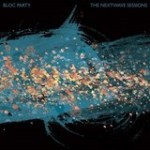The most confusing element about Amanda Palmer is how by now you can expect that at one of her gigs you will never know what to expect.
It’s an unsettling dichotomy.
Since Theatre is evil came out almost a year ago it has been toured extensively, which means every show has to come up with something new, louder, messier, irreventer, iconoclasticer, impulsiver, nakeder to cut it.
The thing about Amanda Palmer on stage is you can tell at a glance she’s ecstatic. She has a blissful beatific look on her face that makes you question who’s enjoying the show the most, the audience or her.
The chemistry with the band is moving.
Many gigs the audience just happens to be there, but with Amanda the audience is involved like it’s a family matter.
Sometimes you glimpse what is really great about her, which is the willingness of offering herself to others (albeit selected others) with no reserve, not fearless but staring fear in the eye which is much more inspiring.
On the 12th of July at the Roundhouse in London such a glimpse glimmered blindingly when Amanda performed Bottomfeeder, feeding herself to the audience accompanied by a gigantic and colourful train stemming from her blazer. It looked (and felt) like a colossal blessing ceremony, with hundreds of hands physically supporting her and having her travel just above the audience.
But there’s an aftertaste that lingers like burnt plastic, because it’s very hard to tell what is true and what is not, what is heartfelt and what is a clever contraption of smoke and mirrors to captivate teenage angst and tumblrbound restlessness.
When the crowds happily sing along joyful Oasis you wonder for a second if each and every fan truly gets the irony of its lyrics and sees through it.
When you shout at the top of your lungs how special everyone and fucking everything is two problems are born: one – why must I pay to see you if art is as spontaneous as breathing?
And two – everyone is special = everyone is equal which would be great in theory but doesn’t really work, because humans need to understand who they are, and to discern each other from the rest they need differences, and will find them in the most unforeseen places if you erase the obvious ones.
The most serious and controversial issues are addressed, but they feel deployed rather than experienced, like the death of a George Martin’s character.
After a while the attempt at showing how easy art is, how everything basically is art, how anyone anywhere at any given moment can make pure art, appears so desperate it feels like a children’s entertainer and most of the times leaves you standing in a grey area of detached apathy.
Everyone is potentially an artist, but not for a second you’re allowed to forget Amanda Palmer is a fucking rockstar. Everyone is a bundle of anxiety and craving love and thus worthy of understanding, everyone except those who don’t quite get Amanda Palmer.
Also theatre might be evil, but circus is obviously everyone’s cup of tea.
Anything goes (it’s easy, after all) as long as it’s whimsical and noisy and you can give the finger to someone or something, same belligerency whether we’re fighting an abstract concept or a tabloid with “stupid nonsense crap that has nothing to do with actual journalism” as its OED entry.
Shouting how preposterous is to focus on your exposed nipple, because it’s nothing new, while naked is one too many rhetoric curlicue.
The audience/family responds enthusiastically. Not one question arises, it’s a spotless faith that allows no doubts.
Amanda is lamb and priest.
I swear, I understand the deconstructing society impulse, the desire for candour and honesty.
But here’s my objection: honesty much like silence peters out when you talk about it.
I felt rather sad after the gig, left behind by a cheering and festive group of people who believe unconditionally. I remained by the holy water, far in the back, in fear of punishment for not fitting in. Afraid my doubts showed.
Because I’m sorry, but I think being naked does not liberate people, I like my art to be difficult, to be suffered and bled into existence. I like to choose what to get angry or sad about, I want to know it’s kind of worth it.
When she lets go for a second you see who Amanda Palmer is (or appears to be, which amounts to the same thing), and it’s brilliant.
Rest of the time feels like she’s stealing glances at her reflection in shop windows, and it leaves you engulfed in style asking for what’s underneath.



